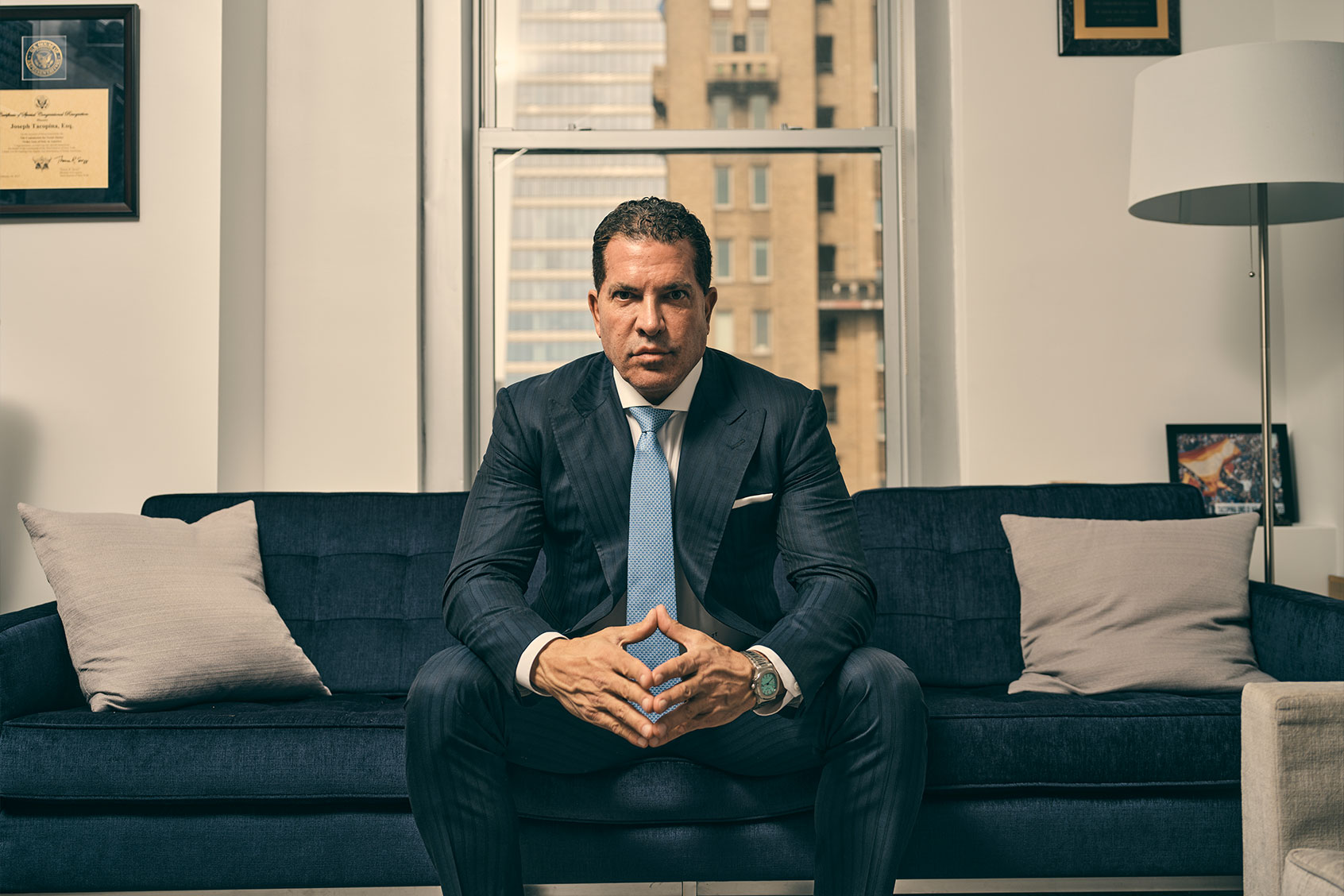Donald Trump’s defense lawyer, who resorted to personal attacks and repetitive questioning in his cross-examination of E. Jean Carroll in the trial over her rape allegation against the former president, only bolstered her case, according to legal experts.
Carroll sued Trump for battery and defamation, alleging that he damaged her reputation by calling her a liar and repeatedly denying her accusations that he raped her in a Bergdorf Goodman department store dressing room in the mid-1990s. Trump’s attorney Joe Tacopina, who has previously represented an NYPD cop accused of on-duty rape of a woman, struggled to defend his client while questioning Carroll and only reinforced her testimony, former prosecutors say.
“[He] violated most of the rules of good cross-examination – tightly focus on just a few key issues, ask only questions to which you know the answer, don’t let the witness simply repeat the compelling parts of her own testimony, and, most importantly, don’t re-victimize the victim,” said former U.S. Attorney Barb McQuade, a law professor at the University of Michigan. “Still, as they say, even a blind squirrel sometimes finds an acorn. If any jurors bite on his boorish line of questioning, he may have succeeded in casting doubt on Carroll’s story.”
At one point, Tacopina asked Carroll about old Facebook posts in which she said she was a “massive” fan of Trump’s reality show “The Apprentice.”
“I had never seen such a witty competition on TV, and it was about something worthwhile, competing,” Carroll said, adding that she posted to Facebook about the show because she wanted to “boost” two friends who were appearing on it.
Tacopina also pressed Carroll about a 2012 Facebook post where she had asked people whether they would have sex with Trump for $17,000 and could keep their eyes closed during it.
She responded by saying she had “made several jokes about Donald Trump” and later testified under questioning from her lawyer that she wrote the post because “it’s much better to laugh than cry,” according to NBC News
His cross-examination of Carroll tried “to suggest something that he could never say explicitly: that Carroll’s life was better not worse because of her violent encounter with Donald Trump,” former federal prosecutor Faith Gay told Salon.
“Tacopina sought to suggest that Carroll’s life had not been destroyed by the incident – as she testified on direct – but, rather, that her life was full of fun, joy and celebrity after Trump assaulted her,” Gay said.
Carroll’s lawsuit alleges that since she revealed her claims of rape against Trump in a 2019 book, his derogatory comments have caused her “emotional pain and suffering at the hands of the man who raped her, as well as injury to her reputation, honor, and dignity,” according to NBC.
During his cross-examination, Tacopina asked Carroll whether her life “has been fabulous” since her book came out.
“I like my life. I say it quite a bit,” Carroll said, adding that while she’ll often describe her life as “fabulous,” she puts up a front.
“I don’t want people to know I suffer. I would be ashamed if people know what’s actually going on,” she said.
Want a daily wrap-up of all the news and commentary Salon has to offer? Subscribe to our morning newsletter, Crash Course.
Carroll delivered a powerful testimony in the trial’s opening days last week and stood her ground when Trump’s lawyer pressed her about the validity of her claims. At one point, she even corrected him saying: “Not supposedly. I was raped, those are the facts.”
On Monday, as he continued to cross-examine her, Carroll’s testimony remained unshaken.
“Carroll noted repeatedly and persuasively that women of her generation were taught to carry on with elegance no matter what life-shattering tragedies were inflicted on them,” Gay said.
Throughout the cross-examination, Carroll remained calm and collected whereas Tacopina’s cross-examination blew up a few times.
When he asked Carroll why she didn’t sue former CBS CEO Leslie Moonves, who allegedly assaulted her in an elevator, Carroll responded that Moonves did not rape her and then call her a liar in public, Gay pointed out.
Judge Lewis Kaplan also repeatedly sustained objections to blatantly improper and repetitive questioning including about Carroll’s intimate life and sexual history.
“The idea is to make the witness lose her cool and start to hurt her own case,” said former federal prosecutor Kevin O’Brien.
If the alleged victim comes across as “sympathetic, candid and reflective,” then “the lawyer loses the jury almost from the opening bell,” and the judge’s reactions reinforce the problem, he added.
“There is a good chance that is what happened to Tacopina here,” O’Brien said. “Carroll was a remarkable witness.”
Carroll’s friend, who she had told about the assault moments after it happened took the witness stand on Tuesday and corroborated her testimony.
“I am here because my friend, my good friend, who was a good person, told me something terrible that happened to her and as a result she lost her employment and her life became very, very difficult,” said Lisa Birnbach, an author and journalist, The New York Times reported.
Birnbach testified that Carroll called her about five to seven minutes after the attack happened, around 6 p.m. one evening in the spring of 1996.
“I want the world to know that she is telling the truth,” Birnbach said.
Read more
about the trial
- “In effect, the case is over”: Legal experts say Carroll’s testimony was emotional “home run”
- Experts say Trump lawyer’s Carroll grilling may backfire: “He went far enough to irritate” the judge
- “No legal basis”: Experts explain Trump’s failed bid for mistrial in E. Jean Carroll lawsuit
- Donald Trump’s defense attorney in rape trial may have accidentally revealed the motive
- Trump doubles down on a losing hand in E. Jean Carroll’s rape case


